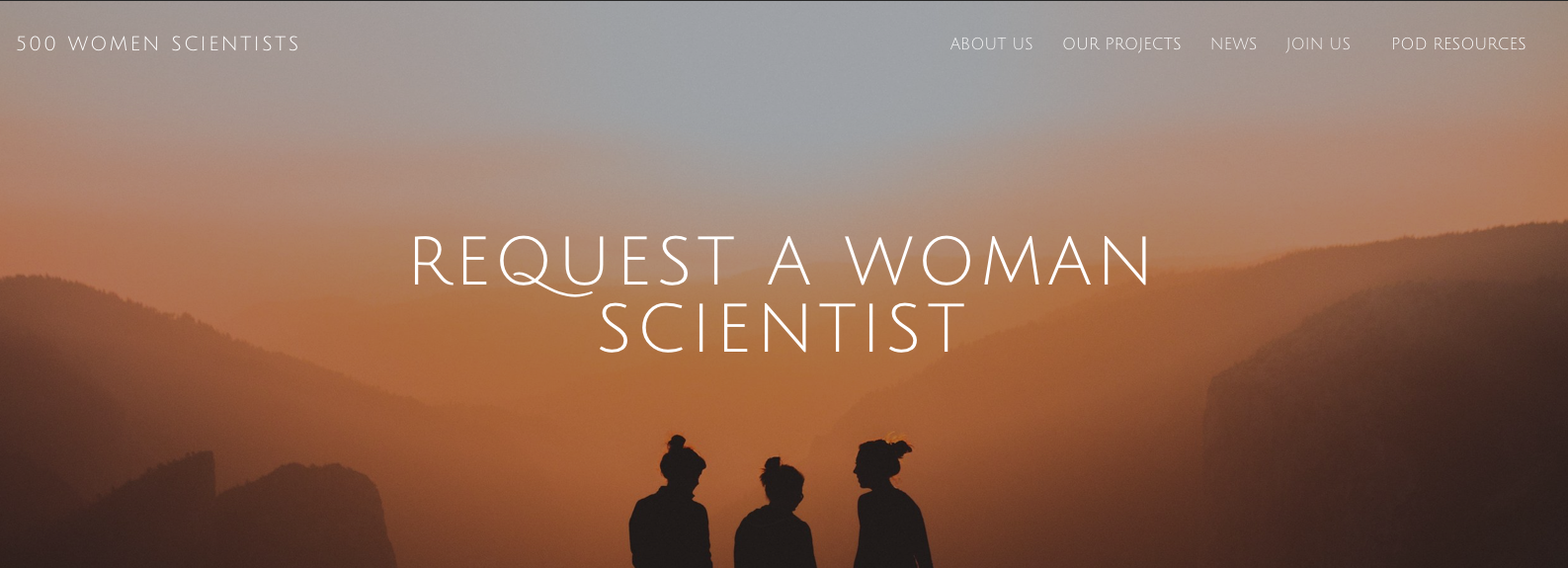
“Why are there so few women in science?” has almost become a tiresome refrain over the years, given how little the answers engage with the thousands of female scientists working all over the world. “Too often,” writes the project 500 Women Scientists, “high-profile articles, conference panels, and boards are filled with a disproportionate number of male voices. News stories are reported by more men by a huge margin, and this imbalance is reflected in how frequently women are quoted in news stories unless journalists make a conscious effort to reach out.
“Most keynote speakers at conferences are men. Panels are so frequently all-male that a new word evolved to describe the phenomenon: manels. These imbalances add up and reinforce the inaccurate perception that science is stale, pale and male.” The next time the question arises—“why are there so few women in science?”—or any other question needing scientific expertise, one need only gesture silently to 500 Women Scientists, a grassroots organization consisting of far more scientists than its title suggests.
Described as “a resource for journalists, educators, policy makers, scientists and anyone needing scientific expertise,” the project began in 2016 as an open letter penned by its founders, then graduate students at Colorado University, Boulder, who decided to re-affirm their values against reactionary attacks by amassing 500 signatures on an open letter. They’ve since built a searchable database of over 9,000 women researchers from around the world, and a resource that helps build local scientific communities.
Since launching last year, their Request a Scientist database has shown “the excuse that you can’t find a qualified woman just doesn't hold,” says co-founder and microbial ecologist Dr. Kelly Ramirez-Donders. It has also provided much more detailed data on women in science, which was published in a paper at PLOS Biology in April. “The group has ambitious plans to keep expanding its reach,” writes STAT. “They’re raising money to start a fellowship for women of color… and they have already launched an affiliate group, 500 Women in Medicine.”
“We’re scientists. We’re lovers of evidence and data points,” says co-founder Maryam Zaringhalam, a molecular biologist. “And so now anytime somebody tells us they couldn’t find someone or there just aren’t enough women in STEM fields, we can point them to [the database] and say, ‘Well, actually, this is the tip of the iceberg, and there’s over 8,000.’… ensuring that women’s voices are represented in the media narratives is really essential for showing that, ‘No, we are here, it’s just that people haven’t necessarily been aware of us or done the work to find us.’”
Correcting misperceptions not only helps reduce biases within scientific communities; it also encourages budding scientists who might otherwise be discouraged from the pursuit. “It’s not that girls are not interested in science,” co-founder Jane Zelikova tells Good Morning America. “Something happens where they don’t see women or girls represented as scientists and they don’t think it’s for them.” 500 Women in Science proves that notion wrong—science is for them, and for everyone who wants to devote their lives to scientific research. Just look at the data.
Related Content:
Real Women Talk About Their Careers in Science
Josh Jones is a writer and musician based in Durham, NC. Follow him at @jdmagness
Women Scientists Launch a Database Featuring the Work of 9,000 Women Working in the Sciences is a post from: Open Culture. Follow us on Facebook, Twitter, and Google Plus, or get our Daily Email. And don't miss our big collections of Free Online Courses, Free Online Movies, Free eBooks, Free Audio Books, Free Foreign Language Lessons, and MOOCs.
from Open Culture https://ift.tt/2NFDtaM
via Ilumina
Comments
Post a Comment